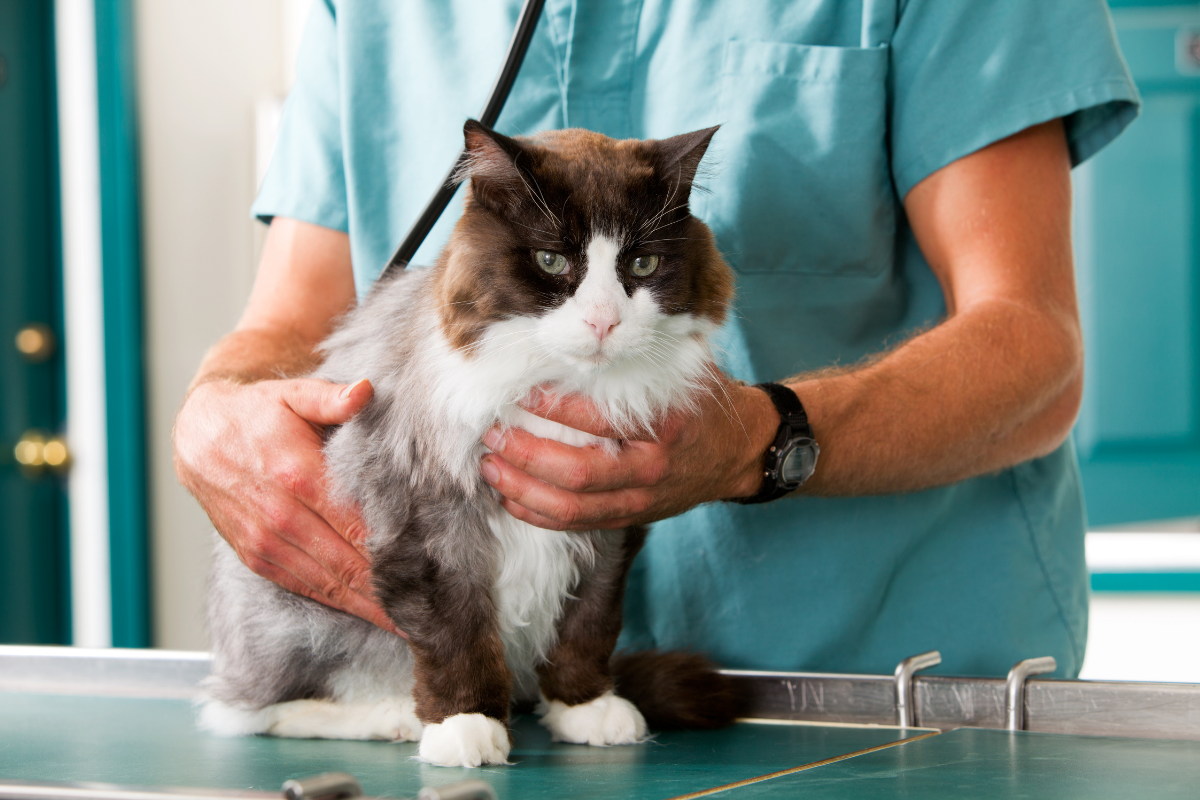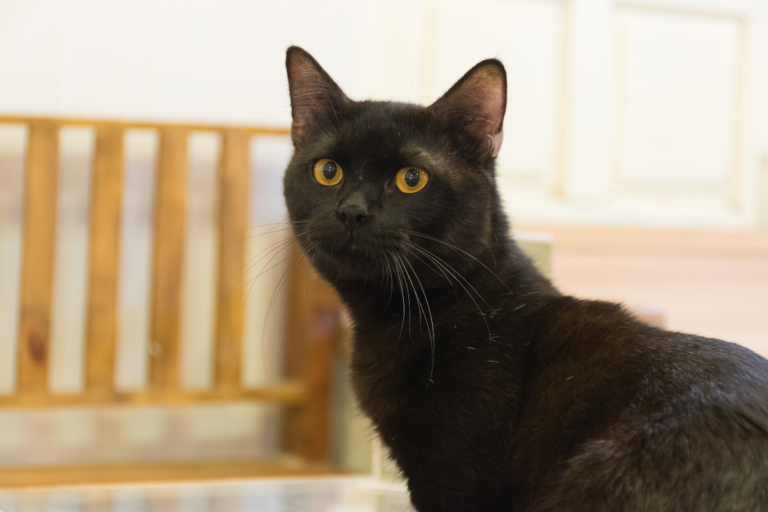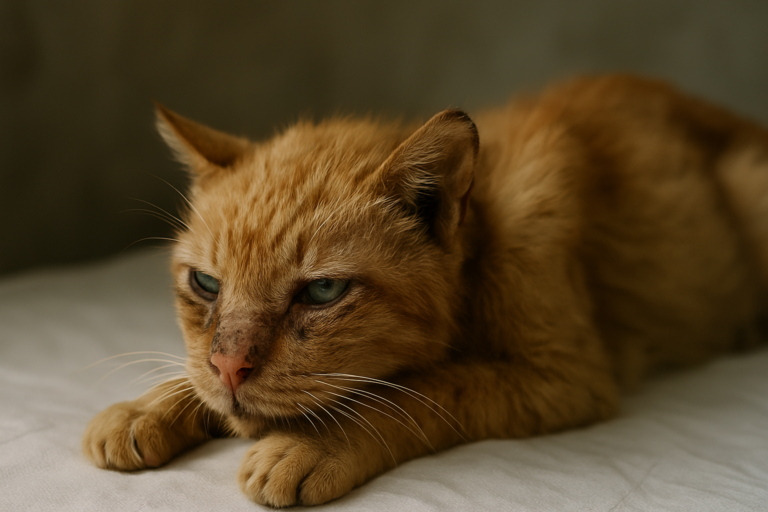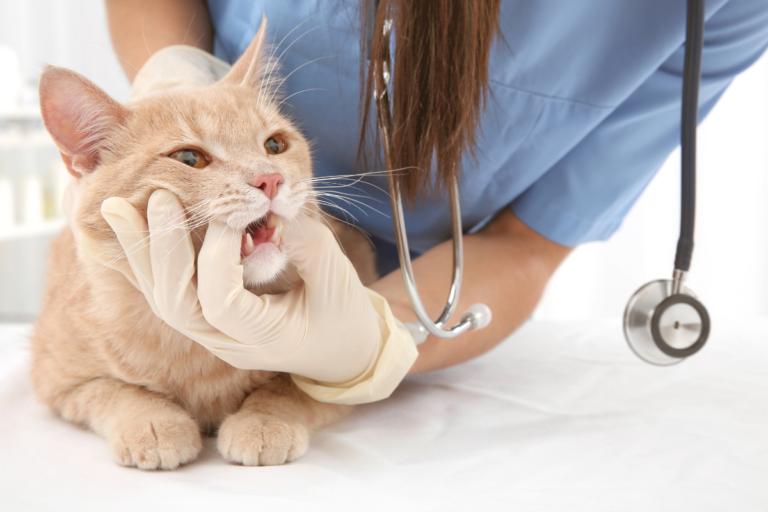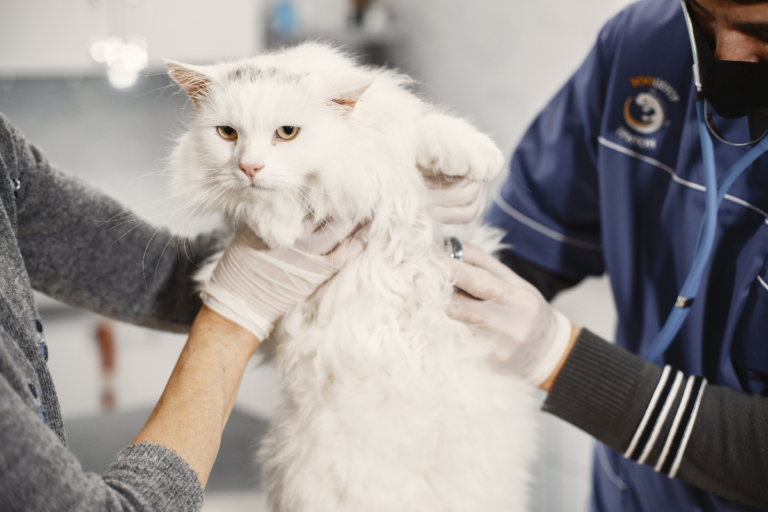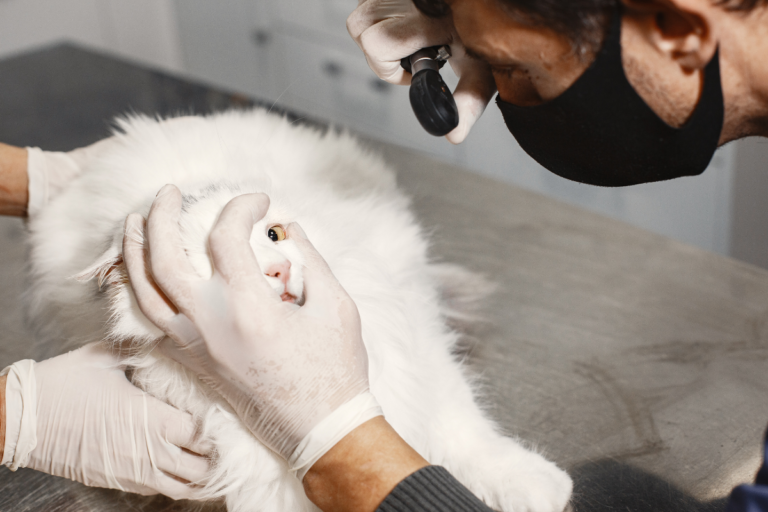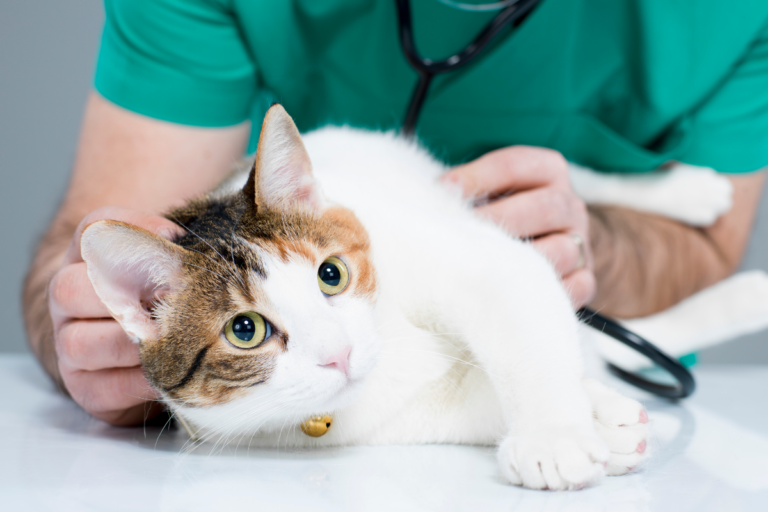Caring for Feline Hearts: Tips to Manage Heart Issues in Cats
Understanding Feline Heart Issues
Common Signs of Heart Disease
So, turns out our furry friends aren’t completely invincible. Cats can actually have heart issues more often than we’d kinda like to think. Being on the lookout for some telltale signs can mean all the difference. Here’s what to keep an eye out for:
- Breathing’s a bit like a funky accordion
- Lazing around way more than a lazy cat should
- Coughing—okay, little dude, you are not a smoker!
- Fainting spells—it’s not the heat or humidity
- Belly looking more like a balloon
Nabbing these signs early means whisking your kitty to the vet pronto could help them feel a whole lot better.
Types of Feline Cardiomyopathy
Most kitty heart troubles come from a bunch of cardiomyopathies. They’re not just big, confusing words; these are the top heart problems stalking our domestic cats. Here’s the lowdown:
| Type of Cardiomyopathy | Characteristics |
|---|---|
| Hypertrophic Cardiomyopathy (HCM) | Heart’s trying to bulk up, but it’s messing with the pumping action. (Ormond Cat Clinic) |
| Dilated Cardiomyopathy (DCM) | Heart’s going all deflated balloon, which ain’t good for business pumping blood. |
| Restrictive Cardiomyopathy (RCM) | Heart gets stiff as a board, making it hard to do its thing. |
Hypertrophic Cardiomyopathy (HCM)
HCM is like the heart’s attempting a bodybuilding routine, but it’s wreaking havoc on the system. Almost two-thirds of heart problems in cats are HCM. Sadly, symptoms don’t always show their grumpy heads until things are quite serious. Think heart failure or, brutal as it sounds, paralysis due to blood clots. Not fun.
Dilated Cardiomyopathy (DCM)
DCM is the skinny guy at the gym, not enough oomph in the muscle department. The heart gets wimpy at pumping. Used to be tied to a lack of taurine, a nifty amino acid. So, feeding your fluffy a good diet rich in it is wise. Check out our tips for keeping them on a balanced diet over here.
Restrictive Cardiomyopathy (RCM)
In RCM, the heart’s acting like it should be flexible, but it’s as bendy as a ruler. Blood backs up, swelling the heart chambers and making it a wee bit tricky to breathe normally. Vet’s guidance is a must here, to keep things in check (VCA Hospitals).
Grasping how these heart conditions shake down helps us cozy up to their needs a bit more. Getting a vet’s eyes on them early and sticking to treatments can give our whiskered playmates better odds for a happy, purring life. For scoop on checking, diagnosing, and treatments tap into our diagnosis and treatment piece.
Keep yourself in the know—better to spot problems before they rear their ugly mugs. We’ve got the deets on stuff like feline kidney disease symptoms and some handy advice on cat gum disease too. Stay sharp and love your critters to bits!
Causes and Symptoms
Alright folks, let’s chat about what’s going on under the hood with our beloved cats when it comes to heart troubles. We’re talking about three main types: Hypertrophic Cardiomyopathy (HCM), Dilated Cardiomyopathy (DCM), and Restrictive Cardiomyopathy (RCM). Learning about these conditions can really help us care for our furry pals.
Hypertrophic Cardiomyopathy (HCM)
Hypertrophic Cardiomyopathy (HCM) is like the heavyweight champ of heart issues in cats. The heart muscles thicken, especially around the left ventricle, potentially clogging things up a bit (PetMD). This often happens in middle-aged kitties and some breeds like Maine Coons and Ragdolls tend to draw the short straw here.
Causes:
- It’s all in the genes
- Maybe tied to hyperthyroidism
Symptoms:
- Your cat’s acting lazy
- Breathing like they ran a marathon
- Coughing like there’s no tomorrow
- Suddenly keeling over
| Symptom | How Common? |
|---|---|
| Lethargy | 71% |
| Rapid Breathing | 63% |
| Coughing | 52% |
| Sudden Collapse | 26% |
Dilated Cardiomyopathy (DCM)
Dilated Cardiomyopathy (DCM) used to really get around, but since taurine got hooked up in cat foods, it’s a less frequent flyer. It’s marked by a big heart with not a lot of wall muscle, thanks to missing out on taurine (PetMD).
Causes:
- Lacking taurine in the diet
- Could be the genes playing tricks again
Symptoms:
- Not interested in chow
- Dropping pounds
- Energy zap
- Struggling to catch their breath
| Symptom | How Common? |
|---|---|
| Lack of Appetite | 85% |
| Weight Loss | 68% |
| Weakness | 58% |
| Difficulty Breathing | 42% |
Restrictive Cardiomyopathy (RCM)
With Restrictive Cardiomyopathy (RCM), the heart muscle doesn’t bend much, so to speak. It usually affects older cats and can stir up a mixture of issues, like slightly bigger heart parts (PetMD).
Causes:
- Scar tissue in the heart
- Genetics still playing the mystery card
Symptoms:
- Acting tired
- Huffing and puffing
- Gathering fluid in places it shouldn’t
- Losing appetite
| Symptom | How Common? |
|---|---|
| Lethargy | 76% |
| Rapid Breathing | 62% |
| Fluid Accumulation | 55% |
| Decreased Appetite | 47% |
Knowing about these conditions and what to watch for means we can catch ’em early and tackle cat heart grumbles head-on. If you’re curious about more heart-related cat stuff, or even concerned about kitty kidneys, our other articles might just have what you’re looking for.
Diagnosis and Treatment
Taking care of cats with heart problems is all about knowing the right steps for diagnosis and treatment. Let’s dig into what it’s all about so our furry feline friends get top-notch care.
Screening and Diagnostic Methods
When our cat feels a little off, there’s a whole kit of tools to figure out what’s going on with their ticker. Here’s the lowdown on the usual suspects in diagnostic gear:
- Physical Check-Up: Your vet might be able to pick up on funky heart sounds or beats just by listening in.
- Echocardiogram (Sound Waves Magic): Think of it like an ultrasound that gives a good peek at how the heart’s doing, without the surgery.
- X-Rays: Just like finding the right puzzle pieces, X-rays help see if the heart’s size or shape is a little out of whack.
- Electrocardiogram (ECG): This tracks the heart’s electric signals and can uncover any hiccups.
- Blood Work: Certain blood tests spill the beans on heart muscle damage or other issues lurking about.
All these steps play a part in piecing together your cat’s heart health puzzle and plotting out the best game plan.
Medical Management Options
Once we know what’s going on with kitty’s heart, it’s all about managing it. Meds are a big part of the plan, and these ones tend to be the go-tos:
- Beta-blockers: They help slow things down when the heart’s racing around like it drank too much caffeine.
- Calcium Channel Blockers: Think of these as the chill pills for the heart muscle.
- ACE Inhibitors: These give the heart a break, making its job a bit easier.
- Diuretics: They’re there to flush out any extra water hanging around.
| Type of Med | What It Does |
|---|---|
| Beta-blockers | Slow heart rate |
| Calcium Channel Blockers | Chill the heart muscles |
| ACE Inhibitors | Make heart work smarter, not harder |
| Diuretics | Get rid of extra fluid |
These meds often need to stay in the picture for the long haul to really be effective. More on meds for cats’ other health grumbles can be found in our chat about cat liver problems.
Lifelong Care and Prognosis
Once heart disease is diagnosed, it often means stepping up the care game for life. This includes regular vet visits, keeping up with meds, and watching out for any changes in how they’re feeling.
The future for cats with heart woes isn’t one-size-fits-all. If we’re talking congestive heart failure, the survival window’s roughly 6 to 12 months. And then there’s the sudden death wildcard, possibly from things like ventricular fibrillation or those nasty blood clots (National Center for Biotechnology Information).
Keeping a close eye and regular vet check-ins are super important to help manage your cat’s journey. For more on keeping your kitty’s life as healthy as a horse, head over to our diet tips section.
Prevention and Care
Looking after our purring pals’ hearts is all about being proactive and sticking to some smart routines. We’re diving into tips about what to feed them, which breeds need extra vigilance, and why seeing the vet regularly is super important.
Dietary Considerations
Got a kitty with a heart problem? No strict meal plans needed unless they’re juggling something like high blood pressure. Keeping them at a good weight and making sure they get enough taurine is the ticket to a happy heart (VCA Hospitals). Salt’s not the enemy unless their blood pressure says otherwise. But, steer clear of grain-free food—I mean, what’s up with that AMCNY’s warning).
| Nutrient | Why It’s a Big Deal |
|---|---|
| Taurine | Crucial for heart muscle mojo |
| Sodium | Keep an eye on it if blood pressure’s an issue |
| Grain Inclusion | Grain-free can be a no-no for heart health |
Noodling over their diet? Check out our piece on keeping cats fit.
Breeds Predisposed to Heart Disease
Some cat breeds have to watch out for heart issues more than others. Knowing the risks means you can catch problems before they start.
| Breed | Heart Worry |
|---|---|
| Maine Coon | Watch for Hypertrophic Cardiomyopathy (HCM) |
| Persian | Prone to Hypertrophic Cardiomyopathy (HCM) |
| Ragdoll | Hypertrophic Cardiomyopathy (HCM) warning |
Maine Coon owners, did you know there’s a DNA test for HCM? Get ahead of the game (Ormond Cat Clinic). Find out about other cat diseases that could crop up on your radar.
Importance of Preventative Medicine
Regular vet visits? Yeah, they’re a must. Early check-ups for high blood pressure and conditions like kidney or thyroid problems are life-savers (AMCNY).
What to do:
- Regular Vet Visits: Those annual check-ups aren’t just for shots—they help catch heart hiccups early.
- Watch Their Diet: Make sure they’re getting the good stuff, like taurine.
- Get Them Moving: A bit of play keeps their heart in tip-top shape.
- DNA Checks: If you’ve got a high-risk breed like a Maine Coon, genetic tests can be a game-changer.
Stay on top of your kitty’s ticker with our guide on preventative cat care.
By taking these measures, our feline friends get to purr along with happy hearts. For the full scoop on keeping them in peak condition, take a peek at our feline wellness resources and more.
